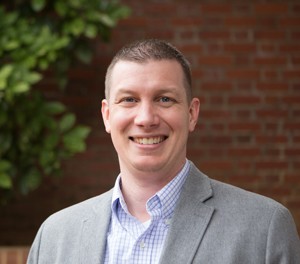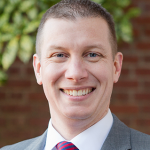At the 2016 ERLC National Conference, Southeastern Seminary’s Bruce Ashford — along with Andrew Walker, Travis Wussow, Steven Harris and Jennifer Marshall — discussed evangelical political engagement. Ashford’s comments gained significant press coverage.
Watch the full panel discussion above. Here are the highlights:
What is public theology? What theologians would you recommend? (section starts at 4:10)
 “A lot of folks tend to consider religion as the private worship of a supernatural deity. That’s why it’s so easy for them to sideline it in political discussion. But the Bible does relate religion to the heart over 800 times in the Bible. So religion is heartfelt, but because it’s heartfelt does not mean it’s private. It’s deeply personal, but it’s public. Because it’s heartfelt, it radiates outward into everything we do publicly. And public theology is just that — it is exposing how it is that Christian theology relates to the public aspects of life.
“A lot of folks tend to consider religion as the private worship of a supernatural deity. That’s why it’s so easy for them to sideline it in political discussion. But the Bible does relate religion to the heart over 800 times in the Bible. So religion is heartfelt, but because it’s heartfelt does not mean it’s private. It’s deeply personal, but it’s public. Because it’s heartfelt, it radiates outward into everything we do publicly. And public theology is just that — it is exposing how it is that Christian theology relates to the public aspects of life.
“One person I would name is Lesslie Newbigin … the British theologian… He served in India as a missionary for three or four decades. When he came home to England he had the realization that England was in need of a missionary encounter with the gospel every bit or more than India was. And so we need to bring our country… into a missionary encounter with the gospel. And that entails a posture of humility. We don’t speak from the commanding heights of culture. And it entails a willingness to suffer. And we as evangelicals of all people should get that… because our Lord reigns from a tree. And only later will he reign visibly from a throne. So we must be willing to decenter ourselves so that we can place Christ at the center…
We need to bring our country into a missionary encounter with the gospel.
“Augustine lived in the Roman empire at a time when it was burning to the ground. Does that sound relevant? (If it doesn’t, then I quit.) The pagan intellectuals of his day cast a master narrative of the world in which Rome was at the center and the savior of the world and in which Christians were the major evil and reason for the ruin of the Roman empire. Augustine decided to respond with a little letter to them. It was a thousand pages long. We now know it as The City of God.
“So many things could be said about this book. I recommend the abridged version translated by Vernon Bourke. What he does is he tells the Bible’s master narrative as the true story of the whole world. He shows that Rome is just a bit player within that grand narrative. And then he reframes everything in light of that narrative. And he shows that the real problem with Rome was pagan religion, pagan philosophy and pagan politics.
“He does it without being condescending, without being rude or arrogant, or misrepresenting his opponents. He does it with grace and in a gospel-centered manner. That’s what we have got to learn to do.”
Every modern political ideology has idols lurking underneath it.
On the 2016 Presidential Election (section starts at 14:10)
“This election cycle has been a nearly unmitigated disaster, a colossal dumpster fire. But I say nearly unmitigated disaster because I think it has taken something of this magnitude, maybe, to awaken many of us or most of us to the fact that we should not be beholden to any narrative — not the Fox News narrative, or the MSNBC narrative, or the Republican narrative, or the Democratic narrative, or any modern political ideology.
“As I see it, every modern political ideology has idols lurking underneath it — liberalism, progressivism, social conservativism, libertarianism, nationalism, socialism. And I think this election has been unsettling enough that we might once again realize that the gospel transcends and calls into question all of those things, and we might regain our witness and the clarity of our voice. At least that’s the hope.”





No comments have been added.